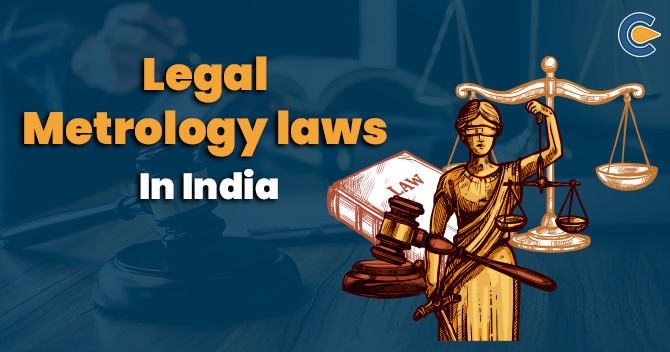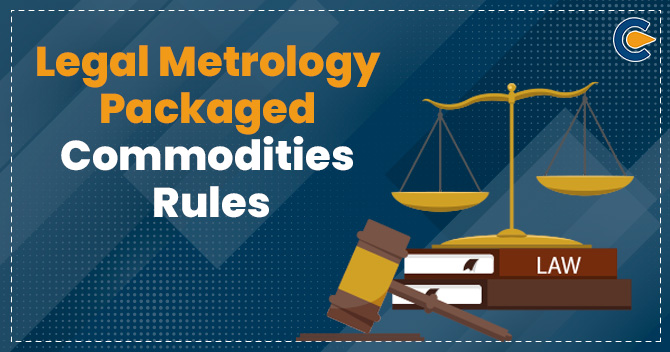Legal Metrology is a regulatory department, and it is part of the Department of Consumer Affairs which refers to the application of rules, regulations, requirements, and procedures on the measurement and the measuring instruments. The Department of Legal Metrology comes under the Department of Consumer Affairs, food and public distribution of Government of India. It keeps a check on the business and import of weighing and measuring instruments in India. Earlier, this Department for Legal Metrology laws was known as the Department of weights and measures, and the Act named Legal Metrology Act, 2009[1] has replaced the Standards of Weights and Measures Act, 1976 and also the Standard Weights and Measures (Enforcement) Act, 1985.
Administrative overview of Legal Metrology
The Department is headed by Director, Legal Metrology, whose office is located at Krishi Bhawan, New Delhi. A few states have their own rules for maintaining Legal Metrology laws. The Controller of Legal Metrology issues the license to the manufacturer, repairer, and dealer of weighs and measurement instruments.
Constitutional provisions related to legal Metrology
Legal Metrology law is dealt with under Entry 50 of Union list as it reads “to frame the Acts and Rules, Specification of standards and International Relations, training in Legal Metrology, etc.” and also under Entry 33A of Concurrent list which talks about enforcement of Legal Metrology.
Legal Metrology Act, 2009
The Legal Metrology Act enforces and establishes standards for weights and measures regulates the trade of weighing and measuring instruments and of the goods sold by weights and measures or anything incidental thereto.
The Act extends to the whole of India.
Enforcement and overview of the Act
The Act came into force on 1st March 2011 while the President gave his assent on 13th January 2010.
The Act contains a total of five chapters with 57 sections.
Important definitions under the Act
- Dealer: A dealer is a person who carries out the business of buying, selling, supplying, or distributing weights or measures or weighing and measuring instruments, directly or indirectly for cash or any kind of remuneration or consideration. Dealer may include any person who sells, supplies, distributes, or delivers any kind of weights or measures to any other person who is not a dealer.
- Manufacturer: A manufacturer is a person who manufactures, acquires, assembles weights and measures, or any part of them, and claims the end product of weights and measures in his name.
- Pre-packaged commodity: A commodity that has been placed in a package, sealed or not, without the purchaser being present so that the product contains a pre-determined quantity.
- Repairer: The person who repairs, cleans, paints, adjusts, and lubricates the weights and measures or renders any service to make sure that the weights and measures are as per the standard established by the Act.
- Weights and Measures: This includes the weighing and measuring instruments too.
Standard weights and measures
- According to Section 4, units of weights and measures should be as per the international system of units.
- Section 5 has given the base unit:
- For length- meter
- For a mass-kilogram
- For time- second
- For electric current- ampere
- For thermodynamics temperature- kelvin
- For luminous intensity-candela
- For the amount of substance- mole
- Section 6 states that the base unit of numeration shall be a unit of international form in Indian numerals, and the numeration shall be as per the decimal system. The decimal multiples and sub-multiples shall be of such denomination and written in the prescribed manner.
- Section 7 provides that the base unit of weight and measures and base unit of numeration shall be the standard unit of weight and measures and standard unit of numeration, respectively.
- According to Section 8, any weight and measures that conform with Section 7 and any numerals which conform with section 6 shall be standard weight and measures and standard numerals, respectively.
- Any transactions, dealings, and contracts related to goods, their class, or undertakings shall be made by prescribed weight, measures, or numbers as mentioned in Section 10.
- Under Section 11, no person shall
- Quote or announce verbally or otherwise any price or charge.
- Issue or exhibit any cash memo, price list, invoice, etc.
- Prepare or publish any advertisements, posters, or other documents.
- Sates or mention the net quantity of a pre-packaged commodity.
- Shows relation to any transaction or protection, any dimension or quantity, otherwise than the prescribed standard unit of numeration, weight, and measures.
- Any custom, usage, practice, or method that is contrary to prescribed standards shall be void under section 12.
Director, Controller, and other metrology officers
- Any Director, Assistant director, deputy director, Additional Director, Joint Director, and any other employee of Legal Metrology for exercising power and discharging duties conferred by or imposed on them under this Act shall be appointed by the Government of India for inter-state trade and commerce.
- Under this Act, the director and Controller will be deemed as Public Servant under Section 21 of Indian Penal Code,1860.
- No act done in good faith or intended to be done under this Act by the Director, Controller, or any metrology officer will attract legal action.
- Any Controller, Joint Controller, Assistant Controller, Additional Controller, Deputy Controller, and any other employee of Legal Metrology for the state for exercising the powers and discharging the duties conferred by and imposed on them under this Act shall be appointed by State Government for intra-state trade and commerce.
- Such director, Controller, or legal metrology officer, has reason to believe that any weight, measure, or good to which any trade and commerce has taken place or intended to take place or any offense has been or is likely to be committed are kept or concealed at any premise or are in transportation then he can enter and search such premises and can seize such weights, measures, goods or any record, documents which he believes can be used as evidence. Every search and seizure shall be under the provisions of the Code of Criminal Procedure, 1973.
- According to section 23, the Controller issues the license, and without such license, the person can manufacture, sell, repair, supply, expose or possess any weights or measures.
Indian Institute of Legal Metrology
Section 21 states that for imparting knowledge of Legal Metrology law or similar branches, the “Indian Institute of Legal Metrology” has been established under this Act.
Verification and stamping of weights and measures
The Central Government may prescribe the type of weights and measures for which verification needs to be done through the Government-approved Test Centre.
Offenses and Penalties under the Act
Followings are some of the penalties given under the Act in contravention of the legal metrology laws:
- For the use of non-standard weight and measure: Fine up to Rs. 25,000/- and for second and subsequent offense imprisonment up to 6 months and fine.
- For alteration of weight and measure: Fine of Rs. 25,000/- and for subsequent act imprisonment up to 6 months which can be extended to 1 year with or without fine.
- For Manufacturing or sale of non-standard weight and measure: Fine of Rs. 25,000/- and for subsequent offense imprisonment up to 3 years with or without a fine.
- For making any transaction, deal, or contract incontravention, quoting, publishing, etc. of the non-standard unit, or transaction in contravention of standard weight or measures, or penalty for the use of unverified weights and measures: Fine up to Rs. 10,000/- and for second and subsequent offense imprisonment of 1 year with or without fine.
- Penalty for tampering with the license: fine up to Rs.25,000 or imprisonment up to 1 year or both.
An appeal under the Act
From the date of the impugned order or decision,an appeal shall be filed within 60 days to the next higher authority of legal metrology laws.
Other legislatures related to Legal Metrology Laws in India
- Every manufacturer, packer, or importer of commodities needs to obtain registration by filing an application under the Legal Metrology (Packaged Commodities) Rules, 2011. This Rule governs the packaging and labeling of commodities. Recently the Rule has been amended, and the Legal Metrology (Packaged Commodities) Amendment Rules, 2017, were notified on June 23, 2017, and came into force on January 1, 2018. This amendment was to enhance the protection of consumers while balancing the requirement of the business.
- The Government of Meghalaya in consultation with the Central Government under section 53of Legal Metrology Act, 2009 has made Meghalaya Legal Metrology (Enforcement) Rules, 2011, which shall extend the whole of Meghalaya.
- Under Section 52 of the Legal Metrology Act, 2009, the Legal Metrology (Numeration) Rules, 2011 has been made. Every numeration will be made in a decimal system. Every number shall be represented on base ten. For representing any numbers in digits international form of Indian numerals i.e., 0,1,2,3,4,5,6,7,8,9 will be used.
- The Indian Institute of Legal Metrology Rules, 2011 was made under section 52 of the Legal Metrology Act, 2009 for long-term and short-term training courses in legal metrology and other related subjects.
- The Central Government has made the Legal Metrology (Approval of Models) Rules, 2011, the main objective of the rule is to carry out the test for approval of the model that’s is a final physical representation of weight and measures.
- The Legal Metrology (National Standard) Rules, 2011 was made by Central Government to give a broad meaning and knowledge of national standards and units of weights and measures.
Conclusion
The main legislature dealing with Legal Metrology law is the Legal Metrology Act, 2009. Legal Metrology law provides guidelines for control on weighing, measurement, and measuring instruments. It protects consumers and provides safety to the public, environment, and traders, and is very particular about fair trade in India. It relies on providing traceability to measurements and measuring instruments. It aims at giving confidence to/between consumers, Government, businessmen, and traders. It controls unfair trade practices.
Read our Article:Suspension or Cancellation of Legal Metrology Act License











